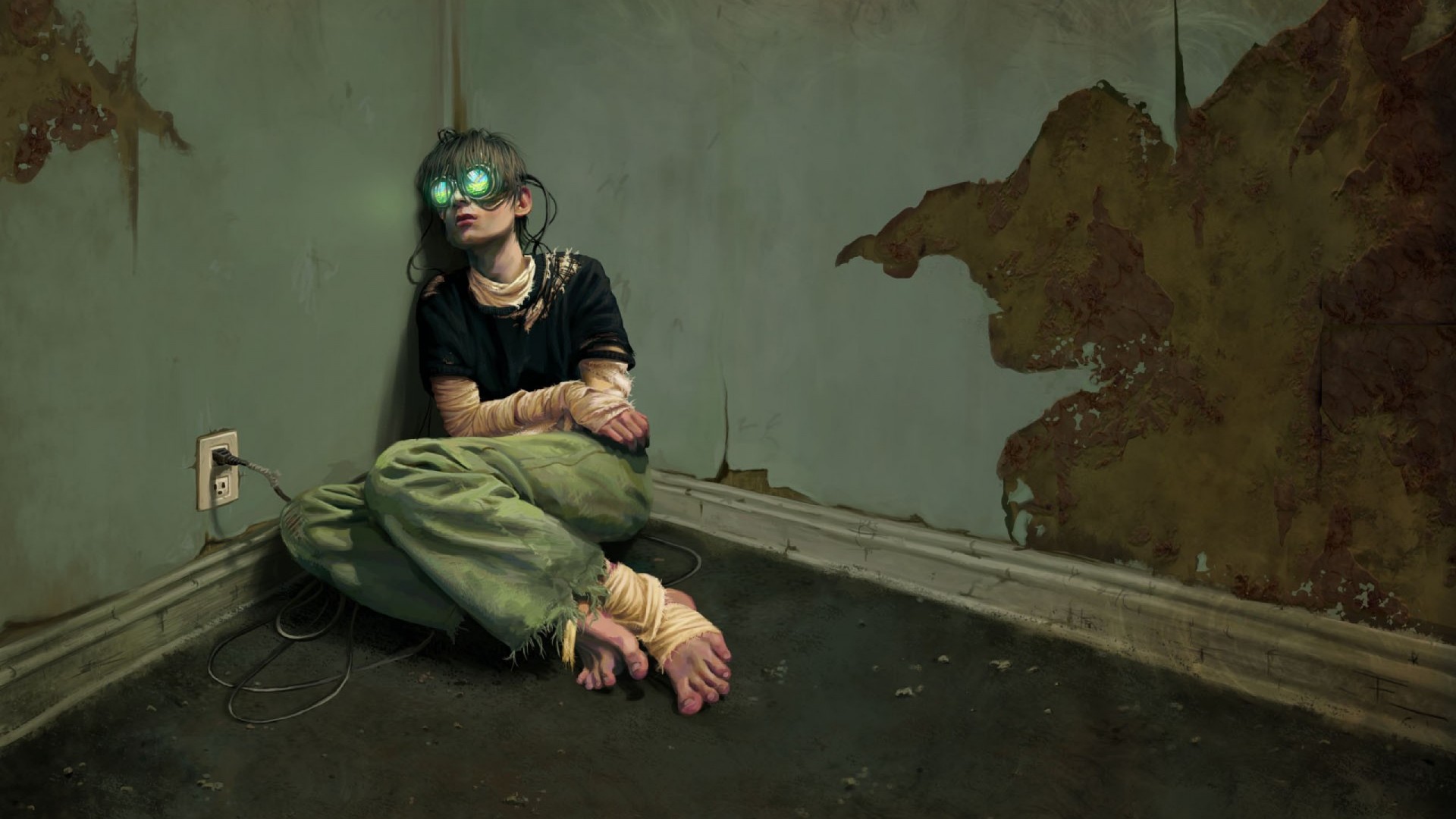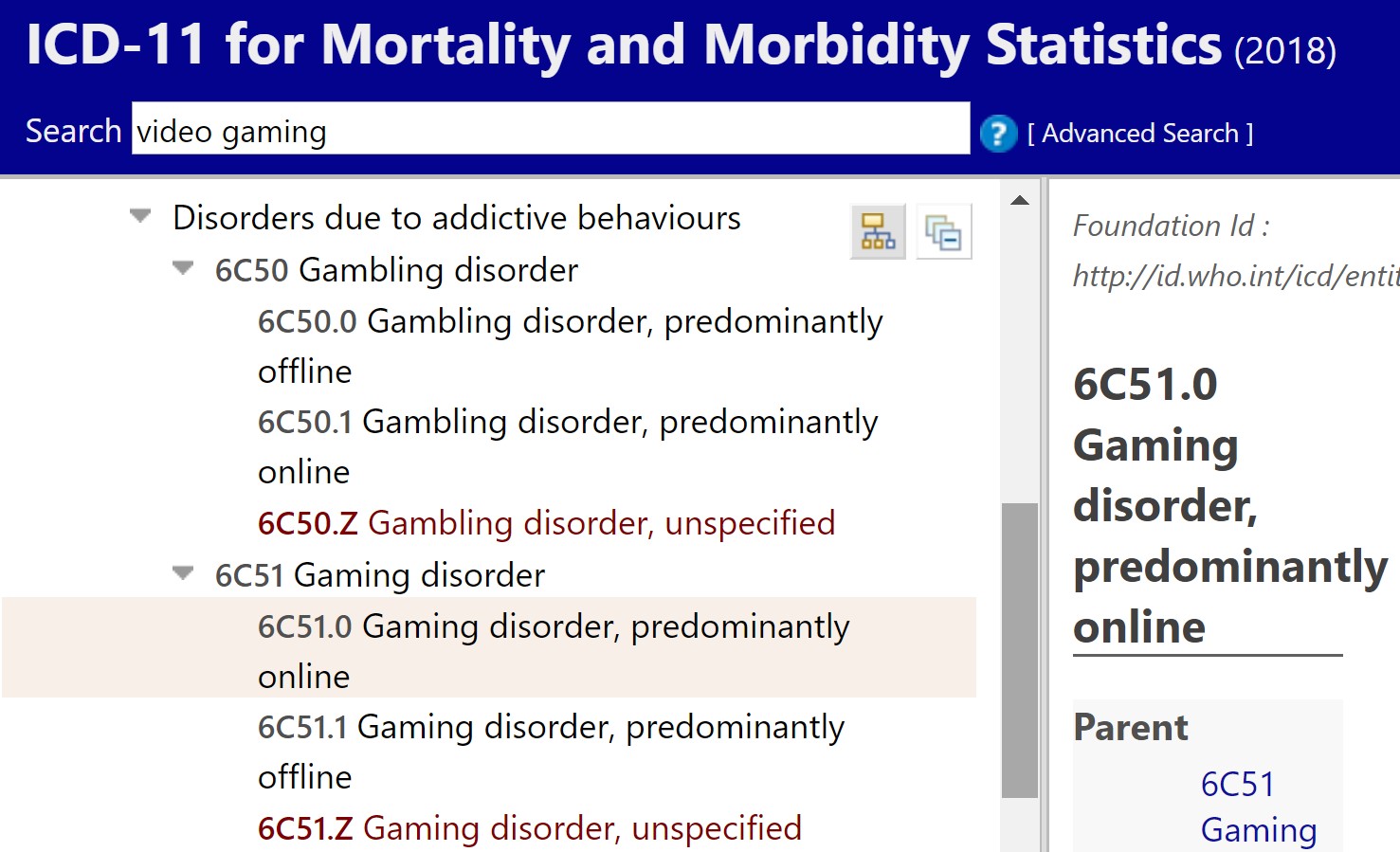The new version of the
International Classification of Diseases , which is being developed by the World Health Organization, along with the addiction to gambling, has become dependent on online and offline video games as a mental disorder. A separate identifier received "dangerous games", which increase the risk of causing physical or mental harm to the patient or his environment.

Since 2012, using the
online platform, experts from the World Health Organization have been developing the eleventh edition of the International Classification of Diseases (ICD-11). The new classifier
contains 55,000 unique codes for injuries, diseases, disorders and causes of death.
The group of diseases associated with behavioral addictions
included not only gambling, but also dependence on computer games, including network games.

Identifiers of disorders have changed in the process of preparing a document on the original drafts,
among which they noticed a gaming addiction last year . The 6C51.0 identifier received a “gaming disorder, mainly online, which is characterized by consistent or repetitive behavior in video games, mostly on the Internet, and is manifested in:
- Violation of control over the game process (start, frequency, duration, termination, context;
- The increase in priority given to the game, over other vital interests and daily activities;
- Continuation or escalation of game activity despite the occurrence of negative consequences. ”
An addiction pattern of behavior will be considered if it leads to deterioration in personal, family, social, educational, professional and other important areas of human life. Diagnosis requires symptom tracking for 12 months, although with a severe form of dependence, this period can be reduced.
The 6C51.1 identifier received a disorder associated with the dependence of offline video games. 6C51.Z is an indefinite game addiction.
A separate item is QE22 - dangerous games. These include dependence on online or offline games, which increases the risk of harm, physical and mental consequences for the player and for the people around him. This risk may depend on the frequency of the game process, the amount of time behind the game, the neglect of other actions and priorities, the risky behavior associated with the game or its context. In this case, a person may be aware of an increased risk of harming himself or others.
It should be noted that the enthusiasm for video games and professional e-sports in accordance with this classifier will not be a mental disorder, since only with a disorder the game process is not controlled by the patient and leads to negative consequences.
Internet addiction has been
cured in China in the last few years. Since 2008, dependency has been officially considered a clinical disorder in the country. Mostly teenagers are subject to it. Treatment can take place in a forced manner, and the institution for this is similar to a mixture of a psychiatric hospital and a military unit. It lasts from three to four months. Symptoms include using the Internet for more than six hours a day for purposes that are not relevant to work or study.
Often the cases in China are really serious. Dependence is characterized including the reluctance to rest: “Our patients are afraid to take a break, as this may affect their game achievements. Instead of going to the toilet, some of them wear diapers. ”
Together with their children, parents can live in an institution. For them, a course on communication with adolescents is provided: “Criticism and accusations — can this really lead to progress, help children change? The main problem of your children is loneliness. Do you know that they feel lonely? And they are looking for companions on the Internet. They know the Internet up and down, but they do not understand anything in people. And so they lose themselves. ”
Interestingly, the term “Internet Addiction Disorder” was jokingly suggested by psychiatrist Ivan Goldberg in 1995. He did not know that he himself would later introduce the diagnostic criteria for this disorder, and that the illness would be treated forcibly in a number of countries. In the concept of "Internet addiction" he put behavior with a reduced level of self-control, supplanting normal life.
On 18 June 2018, WHO
published on its website the version of ICD-11 for subsequent implementation and approval by the World Health Assembly, which will be held in May 2019. As promised by WHO, ICD-11 will enter into force on January 1, 2022. The current current version is
ICD-10 .